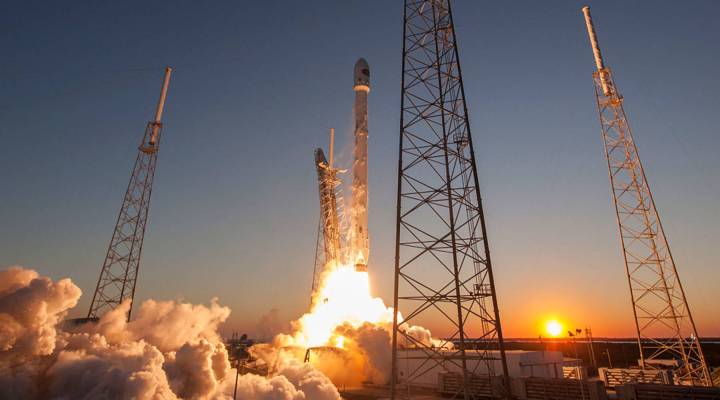
What will be the fallout from SpaceX blast?

Rough news for Elon Musk’s company SpaceX. One of the firm’s rockets exploded at its Cape Canaveral launch pad during a routine test this morning. Fortunately, no one was hurt from the blast, which happened a little after 9:00 a.m. EST.
The Falcon 9 rocket seemed like it was all set. In preparation for its commercial launch Saturday, the company ignited the rocket’s nine engines, kind of cleaning out the pipes. SpaceX always does this. Today something went wrong.
For the briefest moment, fire lit up all 226 feet of the Falcon 9. It was like an x-ray of the ship. And then, the rocket and an Israeli communication company’s $195 million satellite were gone.
In a statement, SpaceX said the explosion was due to an anomaly.
“There’s always inherent risk with rocket launches. That’s just a part of the game,” said Rebecca Keller, an analyst with publisher and geopolitical intelligence firm Stratfor.
A number of private firms have lost rockets, including Virgin Galactic, Orbital ATK and Jeff Bezos’ Blue Origin.
Keller says this could harm SpaceX but more broadly in the wake of this disaster how much tolerance do rocket company customers – like telecom companies – have for these fits and starts.
Space.com managing editor Tariq Malik said it happens more than you might think, “it seems like the business case is kind of being made for commercial launch services,” he said.
“It seems like investors are more willing to back some of those ventures.”
Malik said companies like SpaceX and Blue Origin can afford to withstand setbacks because they are owned by ambitious billionaires. More sustainably, customers from NASA to the U.S. military to telecom firms, have a growing desire to get into space.
There’s a lot happening in the world. Through it all, Marketplace is here for you.
You rely on Marketplace to break down the world’s events and tell you how it affects you in a fact-based, approachable way. We rely on your financial support to keep making that possible.
Your donation today powers the independent journalism that you rely on. For just $5/month, you can help sustain Marketplace so we can keep reporting on the things that matter to you.












